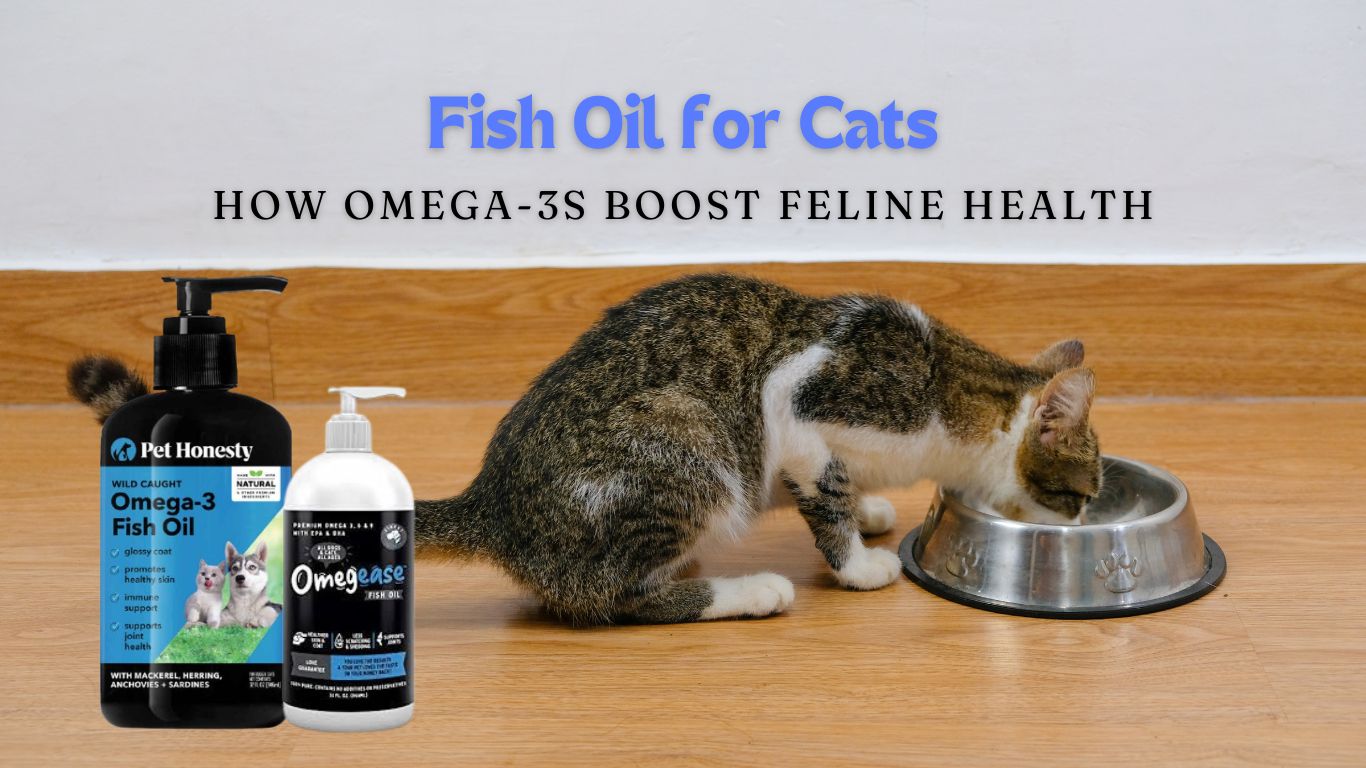
Evaluating fish oil for cats indicates that using this oil supplement add different benefits to the health of cats caused by omega-3 fatty acids it contains. Common flaxseed oil, which has omega-3 fatty acids, is good for the animal’s skin, and it may be of benefit to cat’s with skin issues, arthritis, or high cholesterol. As you ask “Is fish oil safe for cats” let me assure you it’s safe when it is taken in the correct proportions.
In this guide, I will discuss how fish oil is beneficial to cats, how omega-3 fatty acids work and how to incorporate it to your cat’s diet.
What is Fish Oil for Cats?
Fish oil for cats is the oil extracted from oil fish that comprises fatty acids in cold water fish including salmon, sardines and anchovies. It contains two essential omega-3 fatty acids for cats: EPA (Eicosapentaenoic acid) and DHA (docosahexaenoic acid) is found in this type of fish. That is because omega-3 fatty acids are not synthesized by the body and must be consumed either through the foods that the person takes or through supplements.
Omega-3 and cats are inseparable as these fatty acids are important for a variety of processes in the body including skin condition, joint flexibilities and brain function. In some form or the other, cat individuals can find various kinds of omega-3 supplements including salmon oil for cats and other fish oils, which can bring improvement in the health of the pet.
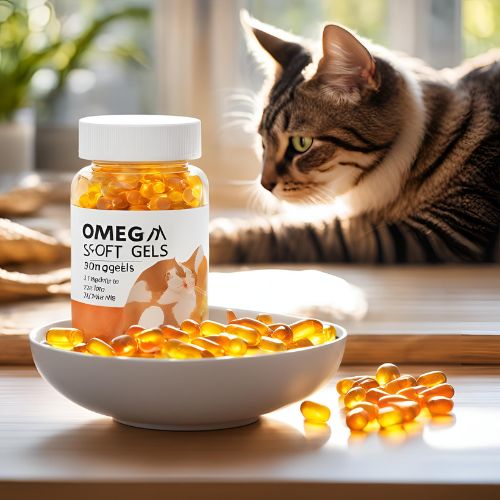
Why Do Cats Need Omega-3 Fatty Acids?
Omega-3 fatty acids for the cat has various benefits in the cat’s body. Here are some key benefits of omega-3 and cats:
- Reduces Inflammation: It is well documented that omega-3 acts as anti-inflammatory agents which will prove useful to cats with rheumatoid arthritis, allergies or any other inflammatory disease.
- Supports Heart Health: It must also be noted that omega-3 fatty acids aid in regulation in blood pressure as well as improving triglyceride levels giving a better heart health status to the feline.
- Improves Skin and Coat Health: Fish oil supplements for cats have benefits to skin and coat, meaning less dry skin, fewer flakes and less itching in your cat. It also can produce a layer in the coat making it shinier and smoother than before.
- Enhances Cognitive Function: Another nutritional element – DHA, an omega-3 fatty acid, that is essential for cat’s overall well-being, especially for aging cats as it helps with brain function.
- Supports Immune System: It contains Omega-3 fatty acid that mainly assists in the enhancement of the immune system and this has an added advantage since your cat will not fall sick easy.
Benefits of Salmon Oil for Cats
Salmon oil for cats is a kind of fish oil that is very famous specifically rich in omega-3, and has a delicious taste. Here are some specific benefits of salmon oil for cats:
Promotes Healthy Skin and Coat
This product can help your cat’s skin and coat become higher quality than they are now. If you feline has skin problems such as dry and flaky skin or damaged coat, the salmon oil is rich in omega-3 fatty acids that promotes skin health and gives your cats coat a natural shine.
Anti-Inflammatory Benefits
The oil sourced from salmon is particularly beneficial for cats that are suffering from inflammation of cartilage or any joint related issues since the oil is loaded with ingredients that will help to reduce inflammation in the cats body.
Enhanced Heart Health
Salmon oil for cats has omega-3 fatty acids that help with the cardiovascular system, including using low blood pressure and maintaining cholesterol.
Boosts Immune System
Another primary advantage of the salmon oil is that it works on the immune system, the component that makes your cat become resistant to diseases and infections.
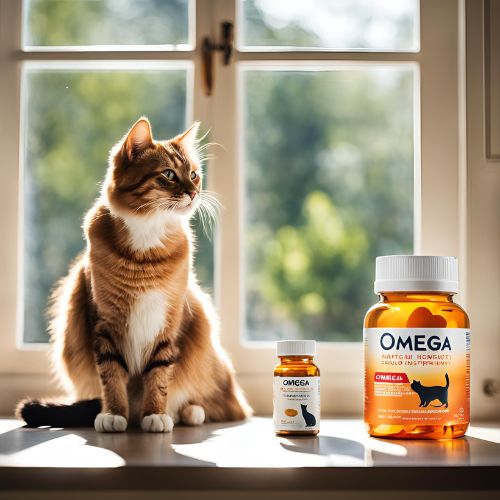
Is Fish Oil Good for Cats?
When you are asking yourself the question, “Is fish oil suitable for cats?” the answer will most likely be yes. Omega-3 fatty acids are hope to be had from fish oil, which are now not without problems discovered in normal feline diets. However, it has been necessary to give fish oil to animals in controlled manner and in appropriate amounts. It is reported that excessive levels of fish oil can cause some unpleasant side effects including digestive disorders or deficiency of vitamin E.
Here are some considerations to keep in mind:
- Quality Matters: Select fish oil for cats from credible manufacturers, and it should not contain toxins such as heavy metal.
- Consult a Vet: Because most supplements have not been tested for cats, always consult with your veterinarian before adding any new supplement to your cat’s diet to establish the right portion that your cat should take.
- Monitor for Reactions: Take some time at the beginning when you are introducing the fish oil to the cat and observe how the cat reacts to it. Although some cats do not digest fish oil well and your vet might suggest something different.
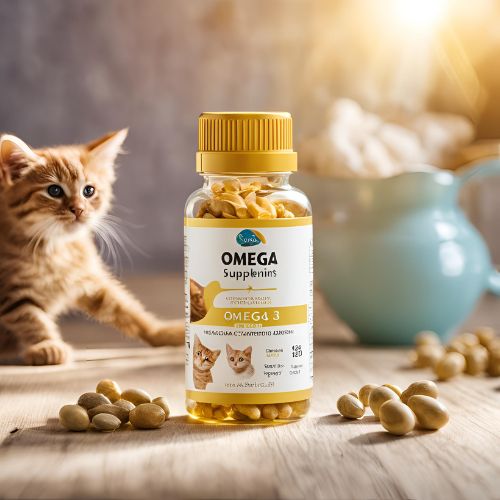
How to Give Fish Oil to Your Cat
It is easy to add fish oil for cats into their diets as it as follows. Many feline fish oil supplements are liquids or are available in capsules which the cats are fed with their meal. Here are a few tips to help you introduce it smoothly:
- Mix It with Their Food: In essence, fish oil can be administered to your cat in its liquid form mixed with the cat’s usual meal. When it comes to choice of flavors most cats are known to be drawn to the smell of fish making it easy to mix it with wet food.
- Use the Right Dosage: The vet really knows the correct amount to give depending on the cat’s size and its health status. As a rule, it is enough to add a small amount of fish oil for cats diet to satisfy its daily requirement of omega-3.
- Try Salmon Oil for Cats: Some cats love a taste of its salmon oil, thus if you have one of those choosy cats, you may wish to try administering it salmon oil perhaps she or he will take it.
- Avoid Overfeeding: Side effects: Taking fish oil in large amounts can cause stomach trouble. The goal is to opt for the best dosage that can eliminate the negative prognosis and decrease adverse effects.
Feline Fish Oil: Types and Considerations
Feline fish oil is available in various forms, including:
- Liquid Fish Oil: Their liquid form makes fish oil supplements easily consumable in your cat’s diet by adding them to your cat’s food. Such products should carry labels that can indicate that they are meant for pets and therefore contain the right compounds.
- Capsules: Fish oil capsules can be opened and put directly into food or you can just use a pill if your cat is okay with it.
- Salmon Oil for Cats: The use of salmon oil as a preferred flavorant is well known because it contains a large amount of omega-3. They love the odor of this fatty acid, especially cats, and it is their preferred fish oil type.
Some of the factors to consider when selecting fish oil for cats include the quality of fish oil, and the fact that it doesn’t contain any additive or preservatives. Choose products from brands that claim their product undergo third party testing to ascertain their purity and safety.
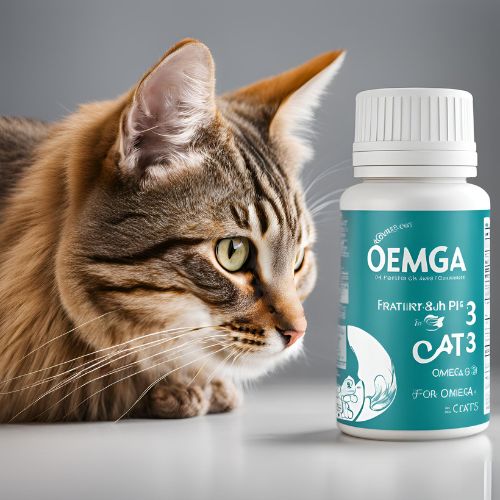
Potential Side Effects of Fish Oil for Cats
While fish oil offers many benefits, there are some potential side effects to be aware of:
- Digestive Upset: Some cats may develop mild gastrointestinal upset such as diarrhea or vomiting when initially fed fish oil. If this happens, then get in touch with the vet and lower the amount of medicine in the pet’s diet.
- Vitamin E Deficiency: Over supplementation of fish oil may deplete vitamin E in the body of your cat which is important in the skin and immune system. While they are beneficial for the body, some fish oils have a drawback of suppressing the immune system and this is countered by the addition of Vitamin E to the product.
- Weight Gain: In the case of less active cats, you do not want to overload them with so many calories as can be gotten from fish oil.
- Fishy Breath: Your cat might produce this fishy smell; however, this stench is usually not very strong, and its effects can easily be controlled by making sure you provide the cat with the right measurement of the product.
How to Choose the Best Omega-3 Supplement for Cats
When selecting omega-3 fatty acids for cats, consider the following factors:
- Purity: To be safe for feline consumption, look for fish oil products labelled for use on pets to avoid those containing contaminants.
- Type of Fish: The popularity of using omega-3 rich sources such as salmon, sardines, or anchovies that are caught in the wild will be seen to be purer.
- Third-Party Testing: It is an uphill task to ensure that the best brands under a particular category are safe for use since high-end brands usually conduct third-party testing before they hit the market.
- Storage: Many vitamins are sensitive to light and heat, and the same applies to fish oil too. Thus, the recommendation of the product is to be kept it in a cool and dark area for the best quality.
Final Thoughts on Fish Oil for Cats
The cat supplement of fish oil or more specifically, salmon oil for cats offers many benefits for the cat’s health. Omega-3 fatty acid benefits for cats includes nourishing the shiny coat and minimizing inflammation, sustaining heart and immune health.
It is important to remind that excessive use of these techniques is counterproductive. If you’re thinking of including fish oil into your cat’s diet, you should talk to your veterinarian about how much you should give your cat and when to give it to them. If you add the right amounts of quality fish oil into your preparations, then your kitty shall enjoy a better lifestyle.
In conclusion, omega-3 and cats go well hand in hand in relation to consumption and fish oil supplements is a perfect source of the above nutrients.
